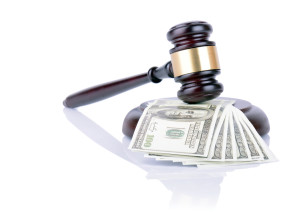Lawyers (some more than others) are experts in the law, but they rarely testify as expert witnesses. Legal malpractice cases, in which expert testimony is needed to establish a lawyer’s standard of care, provide one of the few opportunities for a lawyer to testify as an expert.
But lawyers in malpractice cases do not explain the law to juries. Rather, they explain the actions a prudent lawyer should take or avoid in light of prevailing professional standards.
In most cases, lawyers may not testify as experts on the law. The only expert who can explain the law to the jury is the presiding judge. The judge provides that explanation through jury instructions, not testimony.
A federal criminal case spotlights an unusual instance in which a lawyer was allowed to explain fiduciary duties imposed by state law, the breach of which was relevant to a federal prosecution for fraud. The Court of Appeals for the Third Circuit rejected an appellate challenge to the admission of that expert testimony.
Facts of the Case
Renee Tartaglione was charged with 53 crimes related to defrauding a community clinic and for failing to report income earned from the fraudulent acts. Tartaglione, described in the press as a “member of a longtime Philadelphia political dynasty,” was the president of the board of the Juniata Community Mental Health Clinic.
Prosecutors convinced a jury that Tartaglione caused the nonprofit clinic to pay exorbitant rent for buildings that she and her husband controlled. Prosecutors offered evidence that she used the rent proceeds to remodel her own home and to fund her lifestyle.
Prosecutors also presented evidence that Tartaglione was responsible for a bogus drug treatment program aimed at low income people. The crimes were charged in federal court because the clinic primarily served Medicaid recipients.
The jury convicted Taraglione after a nineteen-day trial. Noting that Taraglione had betrayed the public trust by misappropriating money from a taxpayer-funded program, the judge sentenced Taraglione to 82 months in prison. She appealed, challenging the prosecution’s use of a lawyer as an expert witness.
Expert Testimony Regarding Non-Governing Law
The prosecution called the Deputy Attorney General of Pennsylvania, Mark Pacella, as an expert witness. While a prosecutor who testifies for another prosecutor might have an inherent bias, the question of bias is usually for a jury to consider. Potential bias, by itself, does not typically disqualify expert witnesses, although on rare occasions judges have excluded experts because of their financial interest in the case or because their history of extreme bias renders their opinions unreliable.
Pacella “explained the legal and regulatory framework for Pennsylvania charitable nonprofit corporations, including the fiduciary duties imposed on board members and directors of such organizations.” Since the judge could have explained fiduciary duties in jury instructions, the question before the appellate court was whether the expert testimony violated the rule that lawyers cannot generally testify as experts in the law.
While recognizing the general rule, the court noted that an exception permits legal experts to testify about “non-governing law” if the testimony will assist the jury. The exception usually applies to the law of a foreign country.
Rule 26.1 of the Federal Rules of Criminal Procedure allows a court to consider relevant testimony about foreign law. At least one legal scholar has bemoaned the use of legal experts to testify about domestic law that a trial judge is fully capable of understanding and explaining.
The appellate court nevertheless concluded that a “non-governing law” exception to the general rule covers “applicable legal duties, especially when those non-governing laws help explain fraudulent intent.” Pacella explained the clinic’s Articles of Incorporation and the legal distinction between a for-profit and a charitable nonprofit corporation. The court decided that the testimony did not cover governing law.
Expert Testimony Regarding Fiduciary Duties
More troubling was Pacella’s testimony about the “fiduciary duties of care and loyalty applicable to directors and officers of such organizations under Pennsylvania law.” The court decided that those duties were not “governing law” because they arose under Pennsylvania law and Tartaglione was not charged with violating Pennsylvania law. The court thought it was noteworthy that Pacella testified that Pennsylvania does not criminalize the breach of a fiduciary duty.
The court’s analysis is questionable. Since prosecutors used Pacella’s testimony to argue that a breach of state law fiduciary duties evidenced a violation of federal law, Pennsylvania law “governed” the very conduct that prosecutors deemed fraudulent.
It is difficult to understand the relevance of Pacella’s testimony if not to define legal duties that governed Tartaglione, the breach of which gave rise, at least in part, to federal charges. The court acknowledged that the testimony was offered to support the argument that Tartaglione’s breach of a governing fiduciary duty proved her intent to commit fraud.
The court cited no on-point precedent, probably because most trial judges do not allow prosecutors to call another prosecutor as an expert witness to bolster their case. The court likened Pacella’s testimony to background evidence about scientific principles, but the issue was whether a lawyer can be called as an expert to explain the law, not whether a scientist can be called as an expert to explain science. If the court is the only expert on the law, it is difficult to understand why the explanation of Pennsylvania law governing Tartaglione’s fiduciary duties should not have come from the court rather than an expert witness.




